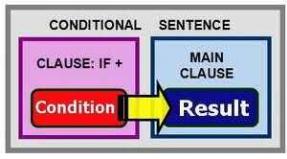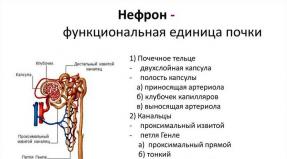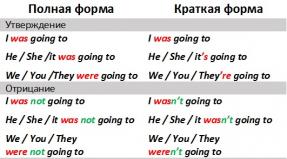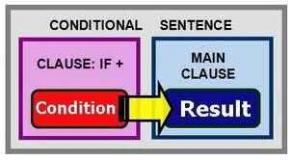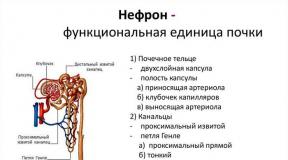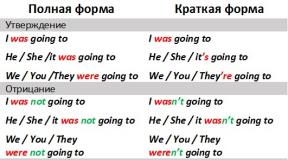Wishes at the end of the letter. Sincerely yours... or how to end business letters correctly. These rules must be followed
When do we write too impressively, and when is our last phrase overly and inappropriately formal? The author of the methodology for teaching business English, Natalya Tokar, talks specifically for Marie Claire about how the hierarchy of signatures actually works.
When I was studying for a master's degree in Germany, I asked myself the same question - how to correctly end a letter in German when I write an application to the rector, send a resume to an employer, or ask unfamiliar classmates what they were asked about film theory. I could do all this in English (so it seemed to me), and German was a new language in which I spoke much better than I wrote. Every time Google “saved” me, and then it turned out that it only spoiled my relationships with people. I didn't understand how the signature hierarchy worked. When do I write too impressively, and when is my last sentence in a letter overly and inappropriately formal? I know that many people who communicate with clients, partners and investors in English also do not understand this hierarchy. What I mean? Let's look at an example of how to start letters.
Question of name
A standard mistake is to translate a phrase in Russian right down to the comma. For example: “Hello, Mr. Peter!” or “Hello, Peter!” English does not use a comma before addresses, and you rarely see an exclamation point at the end of a greeting, unless a bosom friend writes to you in the style of “Hey you!” or “Hey Mike!”
A standard address for business correspondence begins with “Dear” and ends with a comma. Possible options: “Dear Mr. Jones,” “Dear James,” or “Dear friends,” if you are addressing subscribers, colleagues, or another group of people. “Dear Sir/Madam,” is recommended if there is no way to find out the name of the person who can help you. If there is such an opportunity, but you don’t take advantage of it, your letter will most likely end up in the trash. If you're writing a cover letter for your resume and don't know the name of the HR person who will be reading it, take the trouble to find out (Google usually knows and is willing to help). If you are sending out VIP invitations to a conference, especially don’t leave the word after “Dear” impersonal. People like to be called by name, and this is a generally accepted norm, reflecting a polite, attentive attitude towards a person.
From “friendly hugs” to the cold pool of “contacts”
At this point I am usually asked the question: What name should we call them? "Mister" or maybe just "John"? "Miss" or "Mrs"? In short, there are two rules:
- When addressing women, always write Ms (miss) to avoid even a hint of conflict or misunderstanding. This appeal is acceptable for women of any age and any marital status.
- Always address the person as they present themselves. If he introduces himself as John, you can text him “Dear John.” If he introduced himself as John Smith, there is no need to shorten the distance ahead of time and omit the word “Mister”. Start your letter to him with the words “Dear Mr. Smith.” The same rule applies in reverse. If in your first letter you said hello in the style of “Dear John”, and then suddenly decided that in vain you simply addressed by name (to the head of the representative office in the entire Eastern Europe you need to be more polite), and next time you write to him “Dear Mr. Smith,” you suddenly indicate the distance. Sometimes this looks comical, and sometimes it can cause misunderstandings. We usually distance ourselves from people we don't really want to deal with or who have exceeded our trust.
In Russian it would look something like this. First you write: “Hello, Vasya!”, He answers you in a friendly tone and signs: “I invite you to lunch! Vasya". And you begin your next letter to Vasya with the words: “Dear Vasily Olegovich!” What would you think if you were Vasya? Most likely, Vasya will decide that he did or wrote something wrong, since he was suddenly asked to leave the zone of “friendly hugs” and was again sent to the cold pool of “contacts”. John will think the same thing. Therefore, if you work with foreigners, pay attention to how people introduce themselves when you meet them and what signatures they put on their letters.
Simply the best
Now about the signatures. There are many options, and they all mean something. What, for example, does the word “best” mean? In the same Master’s program we had a professor from the USA who always ended her emails like this: “best, Susan.” At that time, for me, this was a completely new rule of etiquette in English, which, as it seemed to me, I knew very well.
It turns out that this is the safest way to end business letters. The hue hierarchy looks like this:
“I wish you all the best, Susan”, “All the best, Susan” and “Best, Susan”
The first option is the most official. Gradually you move towards the third option. If, when discussing who will present the project and how tomorrow, you have already exchanged letters with each other 25 times, it is stupid to write “I wish you all the best” every time. Even “best” will be redundant. In recent issues, Bloomberg wrote that today people treat emails more like text messages, especially if the correspondence occurs in real time. That is, you immediately respond to resolve some issue. It is quite acceptable to leave such letters without a greeting and without a polite farewell.
Especially with the rise in popularity of services like Slack, emails are becoming more and more like text messages: people don't say hello or goodbye, they get straight to the point. However, when we write a letter to a potential client, partner or employer, the rules of etiquette still apply. It is still impolite not to say hello or goodbye to the person you are writing to for the first (and even second) time.
Best or warmest regards
The most favorite option for farewell in a letter in the Russian-speaking space is “best regards”. It all starts with him, especially if it is a cold letter and you have never met the recipient in your life. This option means that you are polite but keep your distance. It is impersonal and does not express any attitude towards the interlocutor. Later, people switch to “kind regards,” thereby indicating that there is more trust in the relationship. “Warm regards” or “warmest regards” may be too warm a farewell if you are discussing equipment supply options. Most often, people quickly switch to just “regards” and leave it for all occasions. The same Bloomberg writes that “regards” and “best” are the two most neutral and therefore most popular ways to end letters.
What about the rest? Is "Sincerely" a truly "sincere" or an overly formal way of saying "goodbye"? Is “Cheers” appropriate when we share photos from a corporate event or is this how we can write to a client? In any case, your writing style reflects your attitude towards your interlocutor. Moreover, with the help of various linguistic units You can establish or consolidate a variety of relationships between people. I will share with you conclusions from real practice of communicating with foreign customers, investors and managers. You can also check with publications such as Inc., Business Insider, Bloomberg, or contact Will Schwalbe, co-author of the best-selling book SEND: Why People Email So Badly and How to Do It Better. They make very similar recommendations.
So, let's look at each option separately.
"Yours Faithfully"– probably the most outdated and most official version. Expresses deep respect for the interlocutor. The phrase is quite acceptable in the countries of the Near and Middle East, but is rare in Western culture and is used only if you begin the letter with the words “Dear Sir.”
"Yours sincerely" or "Sincerely"– this is a suitable option if you need to be especially polite, but nothing more. There is no “warmth” or “sincerity” here. This is how the letter ends from a lawyer who will still charge you an outrageous bill, or a person with whom you have disagreements in business, but it makes sense to continue to cooperate and maintain a professional distance. This is how you can and should end your cover letter to a potential employer. This is how they upload a letter that began with an address by name (“Dear John” / “Dear Mr. Jones”).
One caveat: "Yours sincerely" can really reflect your reverent and sincere attitude towards a person if you are writing a letter to a relative, family member or very close friend. But since this column is dedicated to business communication, I will focus on what can be useful to you in the office tomorrow.
"Best"– the safest and most popular option in business correspondence between native English speakers. When in doubt, type those four letters, a comma, and your name.
"Thanks"- also a safe, but boring option. People write “thank you” everywhere, even when they don’t really say thank you for anything, so use it when you really want to say “thank you.” Add an exclamation point – “Thanks!” to show that you did not write this word automatically.
"Many thanks"- This a good option, if a person helped you or promised to help you, and you sincerely want to express gratitude. At other times, he seems formulaic and insincere.
TTYL, TAFN, etc. You shouldn’t write this way, no matter how much you might want to show that you know these abbreviations. TTYL (“talk to you later”) or TAFN (“that"s all for now”). Such options are unprofessional and may confuse your interlocutor who does not know them or is not used to this style of communication (Outlook is still not a messenger) .
"Looking forward". This phrase makes sense to use if you really intend to see the person soon, meet on Skype, or discuss a project after making changes over the phone. In other cases, it is better not to use it.
“Speak with you soon”/ “Talk soon”– the first option is more formal, the second is simpler. They should be used when you actually intend to talk to this person soon. Otherwise, it is insincere and will not improve your relationship with the interlocutor.
"More soon"- this is what they write when they have not provided all the information in a letter and promise to write a second one - with additions and answers to other questions. If you are not going to do this, it is better to try to write everything at once than to be known as a person who says and does not do. Promise little, deliver much.
"XX"- this option should be used with caution and it is better not to initiate it yourself. I don't use it at all in business correspondence. There are a number of experts who agree with me. However, there is also an opinion that in some situations this signature is appropriate. For example, "Alisa X" is an option for friendly but still professional notes or letters if those "friendships" have already been formed. If not, don't push your luck and don't draw two X's first. It means "Kisses."
"XOXO"- this option is completely unacceptable and means “kisses and hugs.” Save it for close friends and those you want to flirt with.
"Cheers"- an option that signals to an American that you are most likely from England or Australia, or are pretending to be related to these countries. In the USA, such a signature is used extremely rarely. Experts recommend asking yourself, “Would you say this word out loud to another person's face?” and if not, don't use it as a signature.
["Your Name"]– if you end the letter with just your name, this is a rather “cold” and “harsh” way to say goodbye. It's still worth adding something before you remind the person what your name is, and thus demonstrate how you feel about your cooperation - current or potential.
First Initial (e.g. “A”)- some people do not write their full name in their signature, but only one letter. If you remember, at the beginning of the article I clarified that the way you sign letters determines how you will be addressed. If a person puts one letter “W” at the end, it’s difficult to say what it means. How to contact him? Will or William? Or Wolfgang? I had a funny experience with Airbnb. I booked an apartment, and the owner signed his letters with one letter - “E”. It was very awkward for me to start every next letter with the words “Hello E”, but I had no other options. When we met, it turned out that she was a Japanese girl, and her name really was “I.” In Japanese, this name is depicted in hieroglyphs, but the girl prefers not to complicate people’s lives - in English she writes her name with one letter and asks to be addressed as such.
The words spoken by a person at parting play an important role, since they reinforce the overall impression of the conversation. It is especially important to leave a good impression of yourself after the first meeting, because further communication or cooperation depends on this. Correct, and most importantly polite, ending of a conversation plays a very important role in communication.
If we are talking about correspondence, then all of the above becomes even more important. It is not for nothing that popular wisdom says: “What is written with a pen cannot be cut down with an axe.” Whether you are writing a congratulations to a friend or a business letter to a partner, do not forget the importance of ending your message politely and pay special attention to the end of the letter.
So what do the British write at the end of a letter, and what final phrases do they use in business and personal correspondence? Let's take it in order, and start with official letters.
Business letter in Englishlanguage
An official farewell in a letter in English requires increased attention to politeness. Correctly selected closing phrases in a business letter will enhance the effect of the above text and simply leave a good impression of you as a pleasant interlocutor, so the ending of a business letter should be friendly and polite, unobtrusive and unbiased, and moderately emotional.
Let's look at examples of how you can finish a business letter.
| Thank you in advance for any help you might be able to offer. | Thanks in advance for any help you might offer. |
| We would highly appreciate your help and cooperation in this matter. | We will be extremely grateful for your assistance and cooperation in this matter. |
| We firmly believe that such a sweet partnership will be highly beneficial to both our companies. | We are deeply convinced that such a pleasant cooperation will be extremely beneficial for both our companies. |
| Thank you in advance for your time. | Thank you in advance for your time. |
| If you require any further information, feel free to contact me. | If you need any Additional Information, call me without hesitation. |
| I would appreciate your immediate attention to this matter. | I would appreciate your immediate attention to this matter. |
| We hope that we may continue to rely on you. | We hope that we can continue to rely on you. |
| Once again, I apologize for any inconvenience. | Once again I apologize for the inconvenience caused. |
| Thanks for your attention, consideration, time and assistance. | Thank you for your attention, interest, time spent and assistance provided. |
| For any additional questions please, feel free to call or email using the contact information supplied below. | If you have any additional questions, please do not hesitate to call or write to the email listed below. |
| I trust I shall hear from you soon. | Hope forYour earliest reply. |
To say goodbye correctly, you can and should use standard phrases, as well as words of gratitude at the end of the letter. They allow you to give a businesslike farewell in a letter to English language polite tone:
(*appropriate if the addressee and the addressee do not know each other personally)
So, we figured out how to finish a business letter in English. As you can see, there are many options for ending a letter. The main thing is not to forget to write your first name, last name, position, and in some cases, contact information.
For clarity, here are a few excerpts from the endings of official letters.
| […] I hope that a good working relationship develops between us in the future. Also, I would very much appreciate it if a representative from your company will pay us a visit to further discuss this amazing business venture. Please let me know when it will be possible for such a visit to take place. I will make sure that our highly trained stuff will give you a warm welcome and a quick tour of our premises. Looking forward to your prompt response. Yours faithfully, George Collins www.Cyber-Sea.com | […]
I hope that we will have a good working relationship in the future. Additionally, I would appreciate it if a representative from your company would visit us to further discuss this amazing business venture. Please let me know when such a visit will be possible. I will ensure that our highly trained staff give you a warm welcome and show you around our office. We look forward to your prompt response. Yours sincerely, George Collins Cyber Sea, Inc. 425-881-1954 www.Cyber-Sea.com |
| […] We appreciate having the opportunity to do business with you. Our customers are our top priority, and we strive for 100% satisfaction. If you have any questions or concerns about this order, please do not hesitate to contact us. Again, thank you for your purchase. We look forward to serving you again in the future. Customer Service Manager Macy Grace | […]
We appreciate the opportunity to do business with you. Our clients are our top priority and we strive to ensure that they are 100% satisfied with our work. If you have any questions or concerns about this order, please do not hesitate to contact us. Thanks again for your purchase. We look forward to being of service to you again in the future. Sincerely, Customer Service Manager Macy Grace |
| […] Thank you for taking time from your busy schedule to discuss career opportunities in financial services. I am revising my CV to include your suggestions and will send you an updated version by early next week. Again, your comments and time were much appreciated. | […]
Thank you for taking time out of your busy schedule to discuss career opportunities in financial services. I will revise my summary to include your suggestions and send you an updated version early next week. Again, I appreciate your comments and time. Sincerely, John Tobbot |
Farewells inpersonal correspondence
Unlike business, personal correspondence is much more emotional. It emphasizes the closeness and warmth of the relationship between the addressee and the addressee. At the same time, like any correspondence in English, personal letters are distinguished by the utmost politeness. This is worth remembering when writing a message to your close or not so close friends and acquaintances in English-speaking countries.
With all this, in personal correspondence, as in business, there are template phrases. They usually begin and end a letter. Below we have provided a selection of several common closing expressions for ending a personal message.
| Write back soon and let me know all the news. | Write a reply quickly and let me know about all the news. |
| Have a nice day! | Have a good day! |
| Hope to hear from you soon. | Hope to hear news from you soon. |
| I’m sorry I’ve got to go now. | Sorry, it's time to run. |
| Keep in touch | - Stay Connected |
| Well, I must finish now. | Well, it's time for me to finish. |
| Don't forget to write! | Don't forget to write! |
| Write me back soon! | Answer me quickly! |
| I have to finish my letter now because I’m almost sleeping. | I have to finish this letter because I'm almost asleep. |
| Let me know what's going on down there. | Let me know what's going on there. |
| Drop me a line or two when you are free. | When you are free, write me a couple of lines. |
| Anyway, I have to get back to work. | Either way, I need to get back to work. |
| Bye for now! | OK, bye! |
| Waiting for your letter. | I am waiting yours letters. |
| My regards to your family | Say hello to your family for me. |
After the final phrase, we put a polite wish for all the best in English and sign.
At the end of a letter to an acquaintance or not a close friend, you can write the following:
If you write very to a loved one or to a lover, then you don’t have to skimp on your feelings and wishes at the end of the letter:
Of course, this distinction is quite arbitrary, therefore, how to finish a personal letter in English depends to a large extent on you, your emotionality and sincerity.
Examples of personal letters in English
A letter to a friend
| Dear John, I’m just writing to let you know that I’ve moved house. As you may know I went for a job interview here in London. Well, they gave me the position! It would have been impractical to travel down from Manchester every day, so we’ve found a house here, in a nice part of London. Our new house is far from being ideal. London prices are crazy, and we were only able to afford a one-bedroom flat. But on the bright side, it’s on the ground floor, it’s got nice big windows, and a lovely view out onto the garden. If you ever fancy a trip to London, you are more than welcome to come and stay. It would be great to see you. From where we live it’s only a quick ride on the underground into the city center, so we could do some sightseeing together. | Dear John, I am writing to you just to let you know that I have moved. As you may know, I went to London for a job interview. Well, they gave me this position! It wouldn't be practical to travel from Manchester every day, so we found a house here in a nice part of London. Our new house is far from perfect. Prices in London are crazy and we could only afford a one bedroom apartment. But on the other hand, it is on the first floor, there are cool large windows and a beautiful view of the garden. If you ever decide to go to London, you can always stay with us. It would be great to see you. We're only a short metro ride into the city center, so we could go sightseeing together. Be in touch, All the best! |
Congratulatory letter
| Dear Jacob,
I’ve just heard that you received a new job. I couldn't be happier for you. Congratulations! I know it’s not easy to get a job in this troubled job market. It is particularly difficult for a fresh graduate with hardly any work experience. I really appreciate the resourcefulness you showed in your job search. Although I still haven’t been able to find a job, your success has inspired me to try harder. I’m quite sure that your knowledge of computers and artistic skills will make you a great graphics designer. I expect to hear great news coming from your direction in the next years. Best wishes for success. Your sincere friend, | Dear Jacob, I just heard what you got new job. I can't describe how happy I am for you.CongratulationsIYu! I know how difficult it is to find a job in this turbulent labor market, and it is especially difficult for a recent graduate who has virtually no work experience. I really appreciated the resourcefulness you showed in your job search.But I still haven’t been able to find a job, but your success has inspired me to try my best. I am absolutely confident that your computer knowledge and artistic skills will help you become an excellent graphic designer. I expect to hear more great news about you in the coming years. Best wishesImi success. Your sincere friend, Rahul. |
Gratitude for the gift
| Dear Constance, Thank you so much for the lovely gift you sent me! I always wanted this book and aspired to own it. However, I somehow could never make myself buy it. Thank you once more for being so caring and thoughtful and gifting me such a wonderful birthday gift. I loved it so much! Would like you to know that your gift means a lot to me and I will always cherish the same. Thanking you once more Eternally yours, | Dear Constance, Thank you very much for the wonderful gift you sent me. I liked it so much! I always wanted this book and dreamed about it, but could never bring myself to buy it. Victoria I'm an experienced rewriter. I speak English at an advanced level and have teaching experience. I'm interested in writing educational articles on English grammar |
18 166 957 0
An employee in any field sooner or later faces the problem of writing a business letter. Main question– how to start and how to finish? Many sites offer basic rules and examples, paying little attention to the final part of the documents.
The letter must be perfect in every way. Even the slightest non-compliance with the rules can harm your authority or the prestige of the company.
IN short form We suggest that you familiarize yourself with the main rules of business letters and will dwell in more detail on the final part of the official letter.
You will need:
The main rules of business letters
- When writing a letter, remember that you are not expressing your own opinion, but are speaking on behalf of a legal entity (institution, organization or enterprise).
- It is your responsibility to be clear about the results you want to achieve with this letter and to make effective use of all the text's features.
- Clearly define the plan of presentation, highlighting the information in the introduction, main part or ending.
- In the introduction, after the address, we prepare the addressee for perception. It could be summary events that led to the emergence of the document. The main part contains a statement of the essence of the problem with the necessary argumentation (explanation, digital calculations, links to legislative acts).

A more effective and easy-to-understand text, in which, first, the proposal, request or demand is stated, then the argumentation, and there is no introductory part at all.
Part of the ending - applications
Certain documents have appendices that complement, clarify, or detail specific issues. They must be noted at the end of the letter, departing a few lines from the last paragraph.
Application design methods:
1) Applications mentioned in the text, then a note about this is drawn up as follows:
Appendix: 5 pages, 3 copies.
2) Applications not listed in the text must be listed, making sure to indicate the title, number of pages in each application and number of copies.
Appendix: “Certificate of assessment of the cost of unfinished construction”, 2 pages, 3 copies.
3) Sometimes there are several applications. Then they are listed by name and numbered. If there are a large number of applications, a list of them is compiled separately, and in the letter after the text the following is noted:
Appendix: according to the list on ... page.
Attach copies of documents to the letter in the order in which they were numbered in the attachment.
The application is usually signed by the heads of structural divisions. In cases where applications are bound, there is no need to indicate the number of pages.
Politeness and correctness are the basis of the ending
There are various options for constructing the ending. It depends on what was said in the letter.
The most commonly used completion examples:
1) Repeat the gratitude given at the beginning or simply thank you for your help:
Thank you again...
Let me thank you again...
We would like to once again express our sincere gratitude...
Thanks for the help …
2) Express hopes:
We hope that the agreement will be mutually beneficial...
We hope that our offer will interest you...
We look forward to close and mutually beneficial cooperation...
I hope that soon I will be able to meet you in person...
I hope to receive your response soon...
3) Reassurance of the addressee (usually has a psychologically positive effect on the addressee):
We assure you that you can fully count on our support...
We will be glad to cooperate with you...
I would be glad to cooperate with you and look forward to your response...
4) Request:
Please read the materials carefully and respond...
We ask you to urgently inform...
We ask you to take immediate action to improve the situation...
Please call me at any time convenient for you...
5) Repeating the already expressed apology for the inconvenience:
Once again I apologize for the inconvenience caused...
We sincerely apologize for this forced delay in payment...
Parting
1) B official correspondence There are different ways to say goodbye:
Sincerely…
With respect and best wishes...
With sincere respect to you...
We wish you success.
2) If you know the addressee well or successfully cooperate with him, then you can end the letter with friendly phrases (not familiar):
Yours sincerely…
Best wishes…
With gratitude and best wishes.
You can finish the document without using these structures!
English features of ending letters
- Usually they end an official letter like this: Sincerely Yours (Sincerely yours) or simply Yours(Yours) and a signature, indicating your last name and position under it.
- To avoid putting your partner in a difficult position or forcing them to make assumptions about your gender, take the trouble to write your name in full, that is, not P.R. Dovzhenko, but Pavel Dovzhenko.
Signature
Officials sign documents within their competence.
The “signature” attribute consists of the job title, initials and surname of the person who signed the document.
Director of the Mramor plant (signature) A.B. Koval
Documents concluded in institutions operating on the principle of unity of command are signed by one official (manager, deputy or employee entrusted with this).
Documents of collegial bodies (protocols, decisions) are affixed with two signatures (the head and the secretary). The order is signed by the manager.
Two or more signatures are placed on documents for the contents of which several people are responsible:
- Monetary and financial documents are signed by the head of the institution and the chief accountant;
- agreements are signed by representatives of the contracting parties.
The signatures of several persons on documents are placed one below the other in a sequence corresponding to the service hierarchy.
Director (signature) S.P. Antonyuk
Chief accountant (signature) V.T.Dudko
If a document is signed by several persons occupying the same position, their signatures must be placed at the same level.
Director of the Luch plant Director of the Svet plant
(signature) V.R. Sakhno (signature) L.P. Kotov

The signature begins with the initials (placed before the surname), followed by the surname. There is no need to put the decryption of the signature in brackets!
Seal
To secure legal force, some documents are stamped with a seal: contracts, decrees, conclusions, etc. The stamp must include part of the job title and personal signature.
date
The date is placed below the signature on the left.
An official letter is dated on the day it was signed or approved by the head of the institution.
There is a generally accepted dating order:
- Date elements are written on one line using three pairs of Arabic numerals in the order of day, month, year;
- if the serial number of the day or month is the number of the first ten (from 1 to 9), then a zero is placed in front of it: 03.01.15 .
- Word year, reduction G. they don't put it.
- When finished, check the letter for grammatical errors and make sure there is nothing superfluous.
- Give the letter to a colleague or, if possible, a manager to read. An outside perspective will help identify shortcomings that might otherwise be overlooked.
- Don't forget to include your phone/email address. This is often necessary to quickly resolve the problem specified in the letter.
- In addition to the general universal requirements and design rules, it must be taken into account that each type of document has its own design features.
Remember that not all documents have full list the details listed above, but only a certain set of those that ensure the legal force and completeness of this particular type of document.
Good luck with your transactions and the desired answers!
Frequently asked questions and answers
What's nice to write at the end of a business proposal?
Do not use words and phrases at the final stage that can be considered manipulation (“we hope for mutually beneficial cooperation”, “thank you in advance for your answer”, “we will wait for your response letter”, etc.).
Should you write “best wishes” or “with respect” at the end of the letter?
Definitely, “with respect”, must be adhered to business style communication.
What do they usually write at the end of a letter if they ask for a quick response?
Nothing like this is written in a business letter.
Should you write “respectfully” or “best wishes” in your email signature?
"Sincerely".
How to replace the signature "with respect"?
"With all due respect", "With respect."
How to end a presentation letter?
Thank you for your attention.
How else can you write “I would like to notify”?
“I would like to inform”, “notify”, “inform”, “announce”, “bring to the attention of”.
Is the phrase: “I’ll end my report with words” correct?
The signature “with respect” at the end of the letter is a standard politeness formula. Is it always necessary to end a letter with this phrase? How to write it correctly in Russian and English? Let's look at examples.
Download materials on the topic:
How to end a business letter with respect to the recipient
There are no random phrases in official correspondence. Stylistics requires the author to be concise and carefully select words. Closing phrases reinforce positive emotions and express confidence and gratitude at the same time. A clear signature helps support , contributes to achieving the goal. Respect your interlocutor and compose the text so that it is pleasant to read. Politeness combined with professionalism indicates the competence of a specialist.
When writing a formal message, remember that you are speaking on behalf of the entire company. The secretary must be correct, as he represents his manager. Compliance with generally accepted rules of business correspondence forms a positive image of the company in the eyes of partners and clients.
Official correspondence always has specific goals. The purpose determines the structure of the text. In general the text is divided into several semantic parts: introduction, statement of the problem, argumentation and conclusion. Each part performs specific tasks. The introduction, for example, prepares for the perception of main ideas. Conclusion - expresses requests and hopes , assures us of further partnership.
Letter of gratitude to an employee from the head of the organization
Note! For each of the tasks there are generally accepted formulas. By ending your letter politely, you show that you respect your partner, set him up for positive emotions and leave a pleasant impression.
How to write “with respect” at the end of a letter
Unified regulations for business correspondence and bringing it to common standards are typical for large companies. Design letterheads , the form of “autographs” at the end of the message become part of the corporate culture, an element of style. Whether it is a paper or electronic communication, compliance with a single standard is an indicator of attention to detail and important subtleties.
There are several types of closing phrases in business correspondence. Their choice depends on whether you know the recipient well. For example, the signature “with respect” in an official letter has a neutral character. If you want to focus your partner’s attention on something or remind him of a request again, use restrained phrases:
- Yours sincerely...
- Sincerely...
- Best wishes...
When choosing the final politeness formula, try to avoid familiarity. Be mindful of how well you know the person you are writing to. If the acquaintance is formal, stick to the official style.
The answer was prepared jointly with the editors of the electronic magazine “ Secretary's Directory».
Maria BELDOVA answers,
With. n. With. VNIIDAD, expert in the field of documentation support for management
What do we expect when sending a letter to a partner or client? So that our information, even negative, makes a favorable impression on the addressee and provokes a response or decision. This can be achieved if you follow the rules of correspondence etiquette, format the letter correctly and prepare the text High Quality. Your text should be of moderate volume; contain the necessary arguments and clear language and have a structure that best conveys information.
Technique 1. Separate the important from the secondary
The text of a business letter must be of sufficient length to...
The full answer is available after free
“Sincerely” at the end of the letter: with or without a comma
The final form of politeness is given at the end of the text. It is placed on the same vertical line as the date, on the right side. The phrase is separated from the main text by two or three intervals. Located a little lower props "Signature" , including the name of the compiler’s position, his personal signature and transcript. This arrangement complies with the standards of GOST 6.30-97, which defines the requirements for document preparation. If the message is issued on official letterhead or is of a private nature, the title of the position and the transcript of the signature are not included.
The question of how to write “with respect” at the end of a letter: with or without a comma, does not have a clear answer. Both options are valid. The absence of a sign can be perceived as negligence and even illiteracy. On the other hand, according to punctuation rules, this comma should not be used. From the point of view of Russian grammar, the sign is redundant. The words “with respect” are not an introductory phrase, and the signature is not an address. This phrase implies that “This letter was written with respect to you by N.N.” As in it, in the abbreviated version, according to the rules, a comma is not placed.
Why does it occur so often in practice? IN rules of correspondence In English, German and other European languages this sign is required. The phrase “with respect” at the end of a letter in English is separated not only graphically, but also punctuationally. Over time, although it is grammatically incorrect, the rule became part of the norms of the Russian language.
Conclusion of the letter: sample writing of the phrase “with respect”

How to write “with respect” in a business letter in English
Rules business communication in English are in many ways similar to those adopted in Russia. At the end, the recipient is thanked for his time and expresses his intention to continue the correspondence. Common phrases are also used: “with respect”, “with gratitude”, “with best wishes”. Then, on a new line, indicate the surname and first name of the compiler, as well as his position. Let's look at an example: how to sign a letter in English “with respect...”
Table 1. Final politeness formulas in English
|
Yours faithfully |
|||
|
Use if treatment there is a recipient's name. The most common option. |
An obsolete version found in British English. It is written when there is no addressee's name in the address: Dear Sir or Dear Madam |
American equivalent for British Yours faithfully. |
A less formal option, acceptable for correspondence with a friend. Variations: Kind regards, Warm regards, Regards, Kindest regards |
|
Yours sincerely, Alexander Klimov Marketing Director |
Yours faithfully, Alexander Klimov Marketing Director |
Yours truly, Alexander Klimov Marketing Director |
kind regards, Alexander Klimov Marketing Director |
The ability to tactfully and correctly use standard cliche phrases is an indicator of the level of professionalism and knowledge of the language. In English writing, the phrase "with respect" can be expressed in different ways. When composing a text for a foreign partner, take into account all factors and choose the most suitable translation.
How to sign a letter correctly: “with respect” and other politeness formulas
When composing a message, the sender must be guided not only by generally accepted standards, but also by the rules of good manners. If you are writing to a stranger and the address is strictly formal, use established expressions. The style of business speech strictly limits the choice of phrases.
If it concerns email correspondence or communicating with people you know well, you can deviate from rigid canons while remaining polite and correct. Let's look at a few examples of final phrases that are acceptable in less formal communication.
Table 2. Use of alternative closing expressions
|
Specifying a name without a politeness formula |
It is acceptable if there is an active exchange of messages. |
|
Have a good day |
Suitable for a final message if you do not plan to continue the correspondence today. |
|
See you |
If you have made an appointment in the near future and want to emphasize that you have not forgotten about it. |
|
Good luck in your difficult task |
Acceptable when trying to encourage the recipient if he asked for advice or help. |
|
Thank you for your attention |
Used at the end of commercial proposals |
Surely many friends who have moved to different cities or countries do not exchange in social networks every day with short messages, and occasionally they write letters to each other about their lives. Some write by regular postal mail, others by email. Writing the letter itself is easy, but how to finish the letter? This is a problem for many. Today we’ll talk about how to finish a letter correctly.
A letter to a friend
To correctly finish a letter to a friend, first re-read the entire text, and at the same time check for errors. Perhaps you missed something that you can add while checking the letter.
For yourself, you need to know clearly: do you want to receive an answer instantly or do you expect that they will answer you when the opportunity arises? Before you write anything at the end of the letter, decide on a logical connection so that there is no feeling that the letter is not finished, unless, of course, you want to intrigue the recipient.
But how to finish a letter to a friend completely, leaving only a small phrase? You shouldn’t say goodbye too tediously, because you probably don’t say goodbye like that in life. When you have edited your letter, the end is meaningful and the thought is complete, then at the very end at the bottom of the letter you can add phrases such as:
- Your girlfriend/friend (Name);
- >Waiting for an answer;
- I want to see you soon;
- See you;
- Wait for a visit;
- Come soon;
- Kisses (NAME);
- Best wishes;
- Best wishes, your friend (Name).
Business letter
When completing a business letter, you need to check it even more carefully for errors and the correctness of the text, so that everything is clearly stated, so that there is nothing superfluous, naturally, without words such as “what,” “no problem,” and the like. Your tone should be quite confidential and fairly easy to understand.
When approaching the end of your story, you must finally somehow interest the addressee, because the end of the letter is more memorable. But this does not mean that you should not reveal all your cards at the beginning. Gradually you need to let your interest grow and at the end open up completely so that your letter remains in memory.
Before you think about how to end a business letter, you should write down a list of documents attached to the letter, if any. The list must be numbered, and the documents must be attached in the order in which you previously indicated. The last phrase used in a business letter may sound like this:
- Sincerely (Name);
- I hope for cooperation;
- With respect (Name);
- Thank you for responding to my proposal.
Farewells in English in letters
When you communicate with friends or text with a loved one, you don't have to adhere to certain communication boundaries. Somewhere you can make a joke or write a word that you would not be able to use in a business letter. This allows you to communicate more openly.
Nowadays, young people use different slang, which is incomprehensible to the older generation. One of these slangs is the replacement of Russian words with foreign ones. How to end a letter in English is no different from the previous tips. Any letter should be checked so as not to lose face and not send it with a bunch of blots and unfinished thoughts. Just at the end you can add such a highlight as saying goodbye in English. As an example, we will provide you with several suitable phrases:
- With Love (Name) - With love (Name);
- Talk to you later - Let's talk later;
- Good Cheers!* - Have a good mood!*;
- Best wishes (Name) - Best wishes (NAME);
- See you soon - See you soon;
- Yours, (Name) - Yours/Your (Name);
- All the best - Best wishes;
- Thanks in advance - Thanks in advance for your answer;
- Good luck - I wish you good luck;
- Say hi to everyone - Say hello to everyone;
- Truly yours (Name) - Sincerely (Name);
- Sincerely yours (Name) - Sincerely yours (Name).
